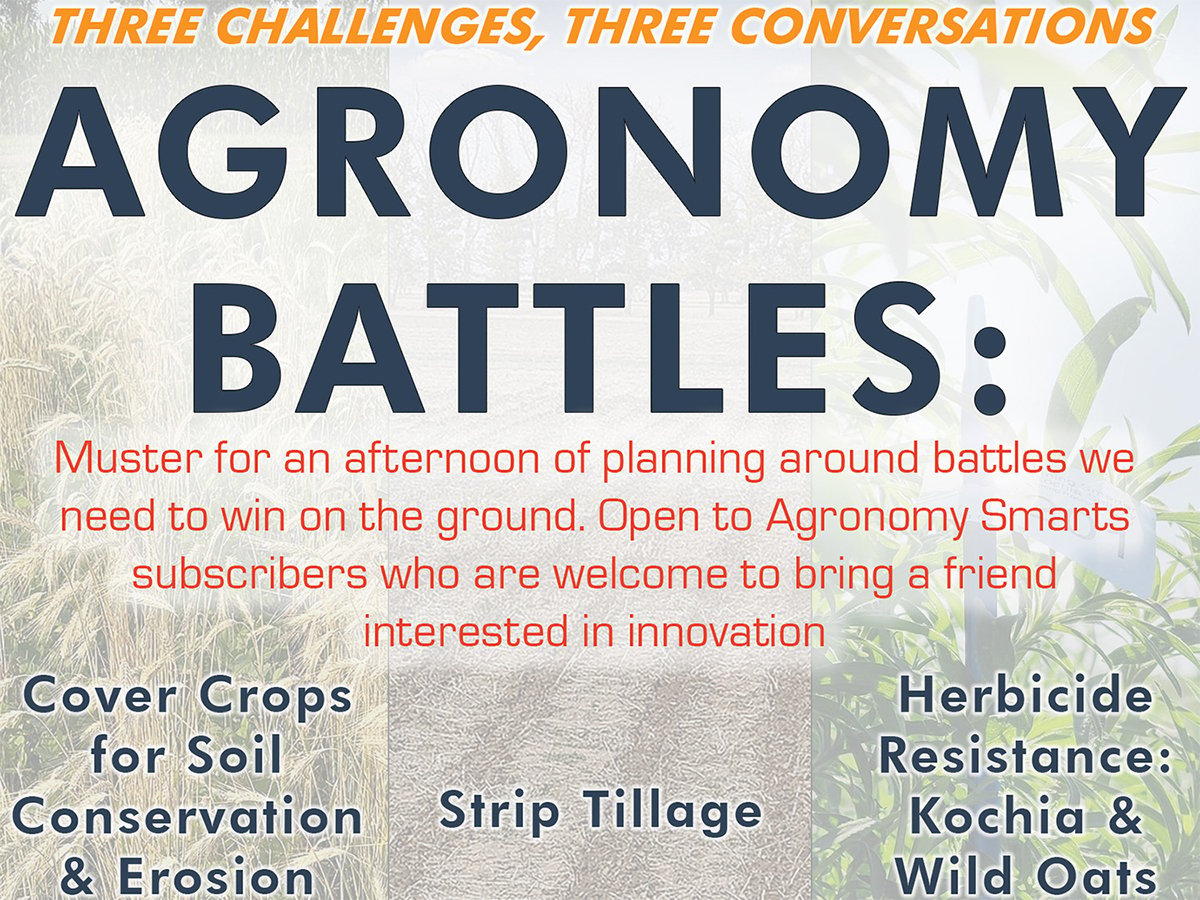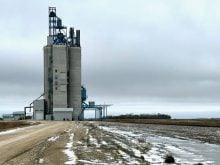Pressure is mounting for Canada to allow more live American hogs bound for slaughter into the country.
Canadian packing companies and American hog producers take exception to quarantine rules designed to stop a deadly disease carried in some American herds from spreading north. They say the rules amount to a ban on slaughter hogs.
Peter Dowling of the National Farmers Union in Ontario said many of the organization’s members don’t understand why the government would change trade rules that prevent infected animals from entering the country.
Read Also

Farming Smarter to hold Agronomy Battles series
Southern Alberta non-profit research institute hope grassroots sessions with producers help focus future research on cover crops, strip tillage and herbicide resistance
“There was an incident in Manitoba last year where 300 hogs that had been certified by American veterinarians to be free of the disease and yet it was discovered in the herd after they arrived in Canada. The entire herd was destroyed,” he said.
Pseudorabies or Aujeszky’s Disease causes abortion and death in newborn pigs. It has hurt American producers for decades but Canada maintains a pseudorabies-free status.
The NFU has been lobbying federal agriculture minister Ralph Goodale to stand firm on the protocol that governs live hog imports. Hogs entering Canada from the United States must wait in quarantine for 30 days and be certified as disease free.
Proposed changes to the import rules would do away with the quarantine period but restrict transportation routes and handling methods.
U.S. pressing
Bill McElheran, of Agriculture Canada in Ottawa, said the U.S. Department of Agriculture has been pushing for change since the late 1980s.
“The American hog industry wants the border opened for obvious reasons and the Canadian meat industry wants access to increased supply.
“Trade people want the changes as well. They haven’t come right out and said it, but there are some that view the issue as a veiled form of tariff barrier to U.S. producers,” he said.
The U.S. continues to apply a retaliatory duty on hogs of 1.34 cents per pound amounting to an average of $3 per hog.
Breeders and genetics suppliers have been the vocal opponents to the proposed changes but feel that even if the American hogs are allowed into Canada, health issues must remain paramount.
They say if the disease somehow worked its way into the Canadian system, they could be prevented from exporting to the U.S. and Europe, and the risk isn’t worth it.
“We ought to just open the borders to trade and have one big market. That said, I don’t think we have to reduce our health standards…. For those states that are clean, we should be able to import slaughter animals subject to inspection just like cattle going south,” said Art Froman, a breeder from Ponoka, Alta.
Changes to the import rules, if adopted, would force trucks carrying imported hogs to travel designated routes, not near any hog operations, and allow slaughter hogs to be imported through border points closest to a specially licensed packer.
The hogs would have to be certified as from a pseudorabies-free herd and from a state that was either free or nearly free of the disease.
The animals would require veterinary inspection prior to being sealed in a trailer. The trailer would be prohibited from passing through states that are not disease free or from coming into contact with other hogs.
Canadian inspectors would inspect the hogs at the border and reseal the trailer.
Under the proposed changes, the trailers containing the U.S. hogs must have been washed and disinfected prior to loading and after unloading but before leaving the slaughter plant.
Plants licensed to handle U.S. slaughter hogs would treat all manure and unused byproducts through rendering, incineration or processing in an urban waste treatment plant.
Nineteen U.S. states are free of the disease, nine have achieved a stage four rating having no known infected herds and are being monitored, one state has a rating of 3.5 and 14 are rated as three and are in the process of cleaning up their herds. The remaining states and one territory maintain one and two stage standings.
The USDA, in a letter to Agriculture Canada, has confirmed that in the event of a future pseudorabies outbreak in Canada, restrictions would be regionalized, “at least no greater than a province.”
The new import protocol is to be introduced sometime in the next two months. Then producers and the industry will have an opportunity to respond to the federal minister of agriculture.
“If the animals come from states that are truly free then I don’t see it being a major risk if all the rules are adhered to…. If the Americans, on the other hand, plan to retaliate if we get any outbreaks of pseudorabies due to allowing importation of their hogs, then that might make it a different story,” said Lorne Penner, a breeder from St. Anne Des Chenes, Man.














